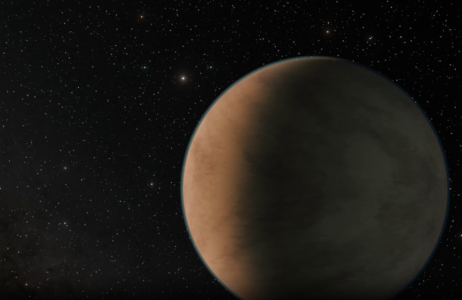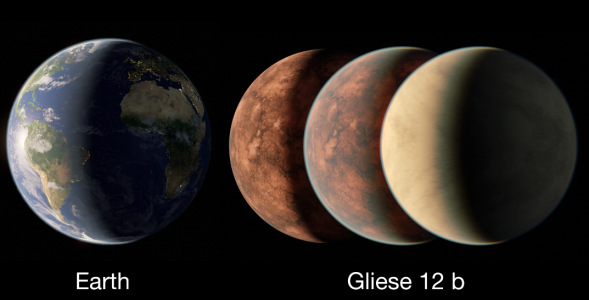Exploring Gliese 12b: Unveiling Earth's twin as a potential sanctuary
By
- Replies 5
The quest for a planet similar to Earth has long captivated the imagination of scientists and space enthusiasts alike.
Now, the discovery of a potentially habitable exoplanet, Gliese 12b, orbiting a dwarf star about 40 light-years away has set off a new wave of excitement and curiosity. Could this distant world be the Earth 2.0 we've been searching for?
Gliese 12b is a planet smaller than Earth but larger than Venus. The exoplanet resides in the constellation Pisces, orbiting a star that is a mere 27 percent the size of our sun and 60 percent as warm.
Gliese 12b sits comfortably within the habitable zone. This is the sweet spot where conditions are just right for liquid water to exist—a crucial ingredient for life as we know it.
The findings, published in The Astrophysical Journal Letters and Monthly Notices of the Royal Astronomical Society, have been made possible by the meticulous observations of NASA's Transiting Exoplanet Survey Satellite (TESS).
The surface temperature of the exoplanet is estimated at around 42 degrees Celsius under the assumption of no atmosphere, suggesting a temperate climate.
'We've found the nearest, transiting, temperate, Earth-size world located to date,' Masayuki Kazuhara stated, a project assistant professor at the Astrobiology Centre in Tokyo.
‘There's only a handful (of exoplanets) we've found that are good candidates for that. And this is our nearest, and so that's quite a major discovery,’ Larissa Palethorpe, a doctoral student at the University of Edinburgh, said.
‘There could be no water, and then we know a runaway greenhouse effect has already happened on this planet, and it's more like Venus,’ she expanded.
‘There could be water, in which case it's more like us, or there are signatures that can be detectable that would be able to show you that the runaway greenhouse effect is in progress, so it could be losing water,’ Palethorpe continued.
The next step in this cosmic detective work is to analyse the exoplanet's atmosphere, if it has one, to search for signs of water and other elements that could indicate the presence of life.
The James Webb Space Telescope, with its advanced capabilities, will be instrumental in this endeavour.
By examining the starlight filtered through Gliese 12b's atmosphere, scientists can determine which molecules are present, offering clues to the planet's composition and potential habitability.
The research on Gliese 12b is not just about finding a potential new home for humanity. It also provides an opportunity to understand the balance that allows a planet to remain habitable.
By studying it, scientists hope to unravel the mysteries of planetary evolution and learn why Earth has remained a haven for life while our neighbour Venus has not.
While Gliese 12b may be a beacon of hope for future generations looking to the stars, the reality of reaching this potential Earth 2.0 is still a dream far away.
‘It's not reachable; it's 12 parsecs away,’ Palethorpe said.
‘It would take about 225,000 years to reach Gliese 12b with the fastest spacecraft that currently exists,’ she added.
Speaking of the vastness of space, the Devil’s Comet made an appearance just last month, flying close to the sun and becoming more visible from our planet.
Key Takeaways
- Two scientific teams have discovered a potentially habitable exoplanet named Gliese 12b, which is 40 light-years away.
- Gliese 12b orbits a red dwarf star within the habitable zone, allowing for the possibility of liquid water, and its surface temperature is calculated to be around 42 degrees without an atmosphere.
- The exoplanet was spotted using data from NASA's Transiting Exoplanet Survey Satellite (TESS).
- A study of Gliese 12b's atmosphere, potentially using the James Webb Space Telescope, could provide insight into its composition, including whether water is present, and could help us understand the conditions that keep a planet habitable.
Could Gliese 12b ever be the future home for humanity, or does its discovery serve as a reminder of the importance of preserving our own planet? Join the conversation and let us know what you think in the comments below!









